Blood scandal relatives accuse PM of platitudes
- Published
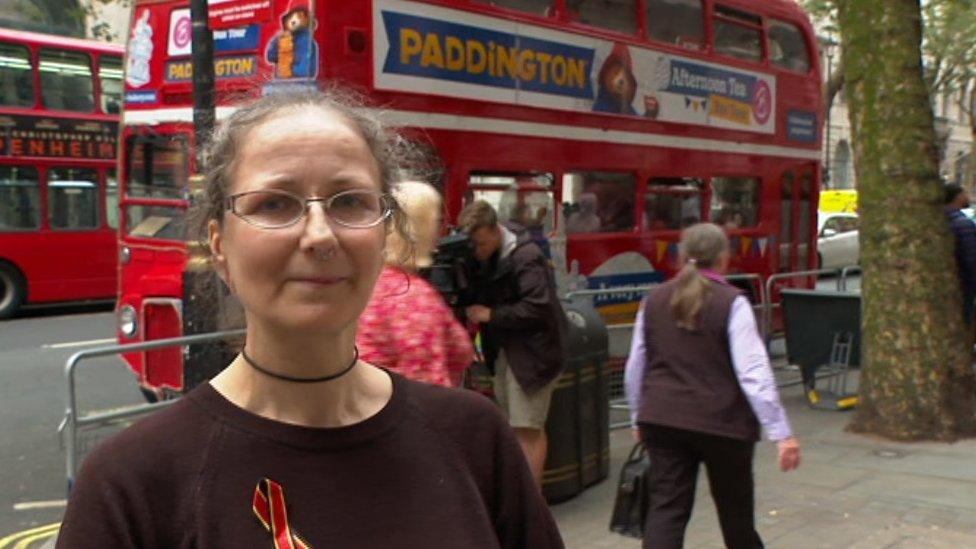
Cressida Haughton lost a family member in the contaminated blood scandal
The relative of a man who died after being given infected blood said evidence presented by Rishi Sunak to an inquiry amounted to "platitudes".
The prime minister was heckled by bereaved families after telling the Infected Blood Inquiry the government would act as "quickly as possible" to compensate them fully.
Cressida Haughton, bereaved after her relative was treated for haemophilia, said she too was left unimpressed.
Families must get justice, she said.
The government has been accused of "dragging its feet" over the issue.
The inquiry was established in 2017 to examine how thousands of patients in the UK developed HIV and hepatitis C through contaminated blood products given in the 1970s and 1980s.
More than 3,000 people died.
Surviving victims and spouses of the deceased received interim compensation payments of £100,000 from the UK government last October.
But campaigners are calling for the immediate rollout of full compensation, along with an extension of pay-outs to other close relatives.
The chairman of the inquiry, Sir Brian Langstaff, said compensation should include the children and parents of those who died.
Ms Haughton, from Coventry, said relatives had "put their lives on hold, been carers, and hadn't fulfilled their own dreams" as a result of the infections.
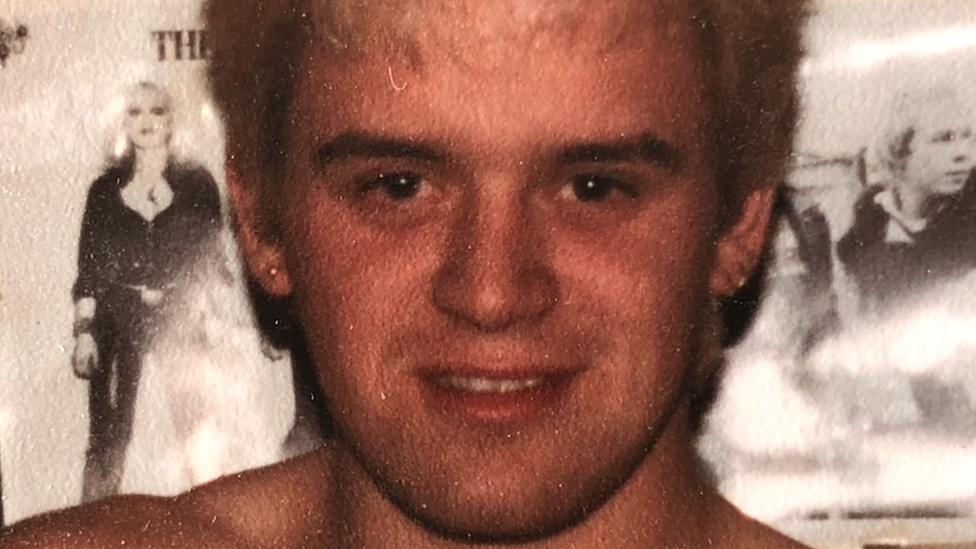
Marc Payton died after contracting HIV and hepatitis C via NHS treatments
The inquiry has recommended the government establishes a compensation body as soon as possible, and definitely before a final report into the contamination saga, due in the autumn.
Giving evidence on Wednesday, however, Mr Sunak told the inquiry the government would wait for the report before responding to questions around compensation.
Ms Haughton, who has not disclosed her familial link to her affected relative, called for payments to be widened, saying: "There's nothing stopping the government doing that as far as we can see, and we didn't really get the answer as to what it was that was stopping them."
Rishi Sunak is questioned over compensation delays, as the families and victims vent their anger over some of his answers
Ms Haughton added she had felt "uncomfortable" listening to the prime minister's evidence.
"He wasn't actually looking at the members in the audience," she said.
"We are the ones that felt cheated and lied to and side-lined over these years - do us the honour of looking up to us when you're saying those words.
"We are the ones that need assurances, and not just platitudes."
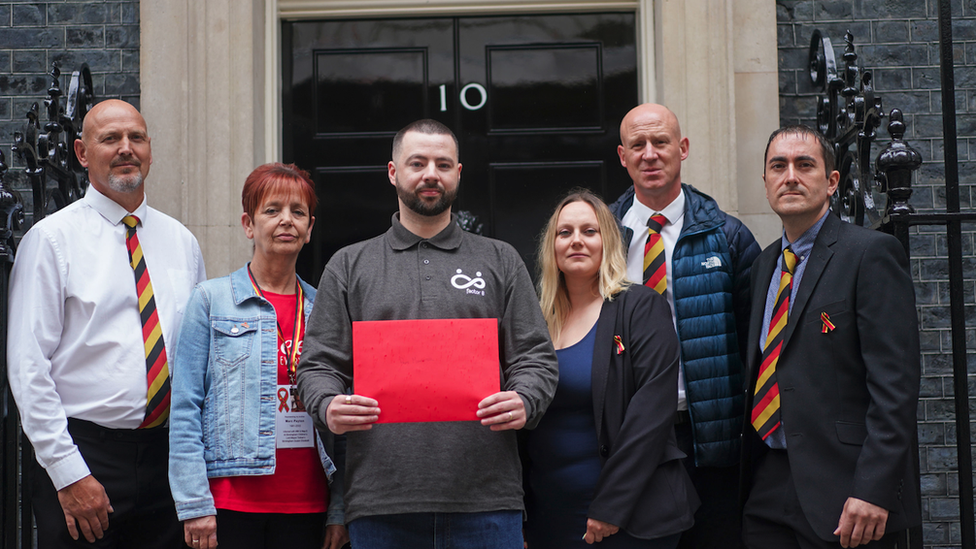
Janine Jones (second right) joined other relatives of victims in handing a letter to 10 Downing Street on Monday
Bereaved Janine Jones, from Bromsgrove, Worcestershire, said her brother died 20 years ago after being treated with infected blood.
Marc Payton was diagnosed with HIV in 1985 when he was 23 and told he had hepatitis C in 1990, she explained.
Their elderly parents, Ron and Val, had both died while waiting for justice, she added.
"Because he wasn't married or he didn't have a partner when he died, there has been no compensation paid to him at all."
She said she had a "big range of emotions" listening to Mr Sunak's evidence.
"All we want is all our dead to be recognised," she said. "There's that many estates that could be paid out and they're just dragging their feet.
"It really hurts, it really does."

Follow BBC West Midlands on Facebook, external, Twitter, external and Instagram, external. Send your story ideas to: newsonline.westmidlands@bbc.co.uk, external
Related topics
- Published26 July 2023
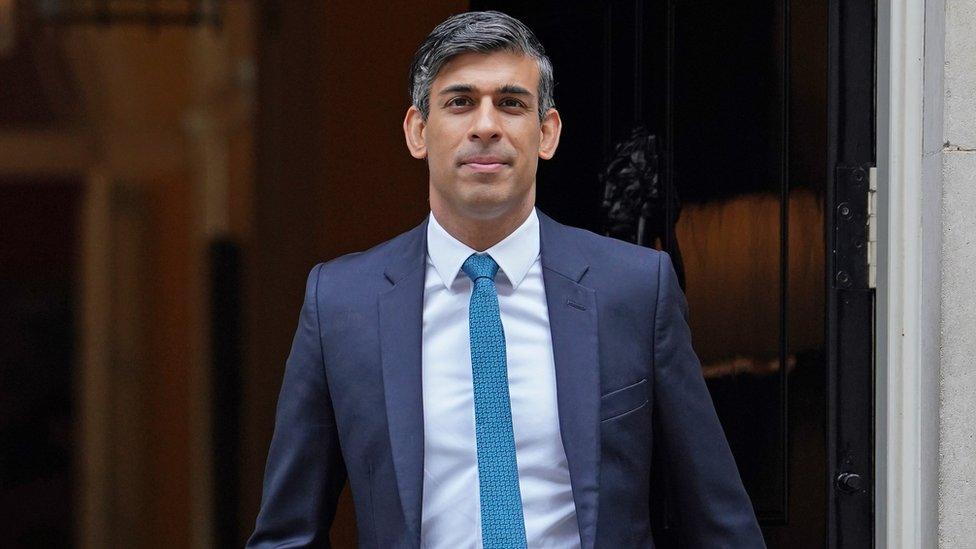
- Published24 July 2023
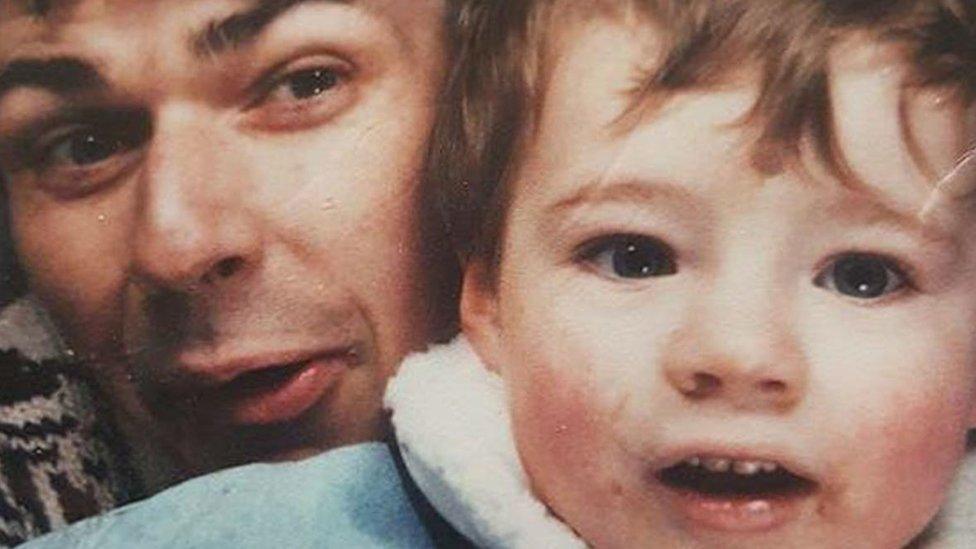
- Published5 April 2023
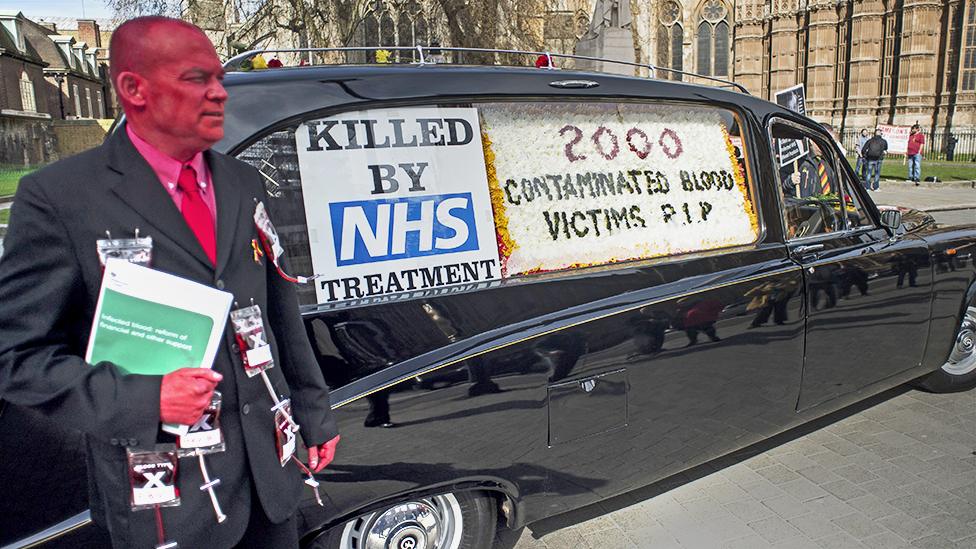
- Published3 February 2023
